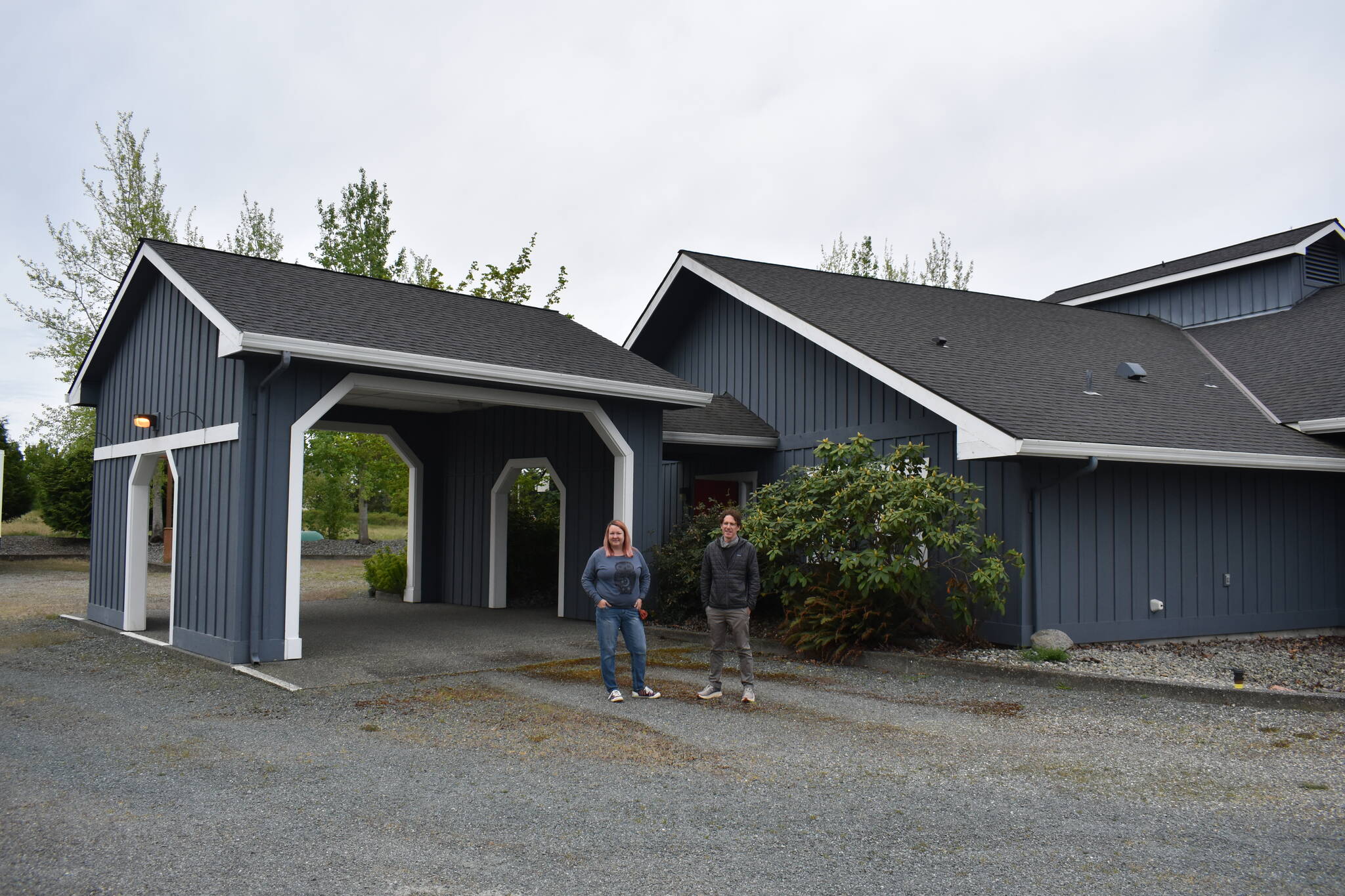A judge threw out an appeal to the Island County hearing examiner’s decision that allows for a Jehovah’s Witness church in Central Whidbey to be converted into an emergency overnight shelter for homeless people.
The decision means that, unless appealed, the Whidbey Homeless Coalition can move forward with converting the building into a shelter in the new year.
Island County Superior Court Judge Carolyn Cliff granted Island County’s motion to dismiss a land use petition filed by Kyle Green, a Central Whidbey property owner. She agreed with the county prosecutor’s argument that Green did not have standing and that he did not identify any actual injury he would likely incur if the shelter opened.
Green filed the petition Oct. 27 against the Whidbey Homeless Coalition and the county. He alleged a long list of factual errors as well as errors of law by county Hearing Examiner Andrew Reeves.
The coalition opened The Haven in 2017 with the help of faith-based and community partners. Since then it’s operated as a “pop-up” shelter hosted by Oak Harbor churches on a rotating basis, but the group has sought a permanent location. Two years ago, the coalition was awarded a $415,000 shelter grant from the state Department of Commerce to purchase a former church on about two acres on Morris Road in Central Whidbey and convert it into a shelter.
The proposal, however, was controversial with some who live in the rural area and worried about increased crime, septic system tank problems, decreased property values and other issues.
The facility will house up to 30 guests a night. Under the terms of the hearing examiner’s approval, guests will be screened and then transferred from Oak Harbor at 6 p.m. each night and driven back to Oak Harbor each morning at 7 a.m. via vans operated by the nonprofit. Paid, trained staff will be on-site at all times to oversee shelter guests. The guests will only be permitted outside the building during two supervised smoke breaks.
Green previously was successful in appealing the planning department’s approval of a Type II site plan, which would allow up to 12 guests. The hearing examiner agreed that the nonprofit should have sought a Type III decision, which allows up to 30 guests, since that was the ultimate goal. The group received Type III approval from the hearing examiner this fall, which is what Green appealed to superior court.
The county’s motion to dismiss states that Green’s petition, filed by Friday Harbor attorney Nicholas Power, doesn’t satisfy any of four conditions required under state law regarding standing in land use petitions. It argues that Green doesn’t describe any specific injury. The motion points out that Green doesn’t live on the property, which is 0.9 miles away from the church.
Green “fails to allege or demonstrate how the operation of an emergency night-to-night shelter will harm an undeveloped property almost a mile away, much less any forestry operations,” the county’s motion states.
In a declaration in response, Green states that he would indeed suffer specific injury if the project is allowed to proceed. He points to increased traffic at the intersection of Highway 20 and Morris Road, change in the rural character of the area, increased crime and an insufficient wastewater treatment system causing potential environmental and health hazards.
The county countered that speculation and fear that something would happen without any evidence does not confer standing.
“He presents no evidence that the conversion of an existing structure would change the rural character or visual effect at his vacant land 0.9 miles away, or if it is even visible or audible from his vacant land at that distance,” the county responded.
Whidbey Homeless Coalition filed a response in agreement with the county and asked for attorney’s fees from Green.
“The appeal is frivolous and is brought for the purpose of unjust delay,” the response states.
A statement from the Homeless Coalition filed in the case explains that the arrangement with the churches, which requires setting up and breaking down beds each day, was not sustainable. It states that the group petitioned the city of Oak Harbor for years to allow for a permitted, permanent night-to-night shelter, “but it was unfortunately repeatedly rebuffed.”
The statement claims that the coalition refuted issues brought up by opponents in earlier meetings but they were repeated to the hearing examiner. The nonprofit states that the facility’s water and septic systems, for example, are approved for the needs of the shelter and that the group has long worked with law enforcement without any problems.
Green can appeal to the state Court of Appeals once a final written order is entered.



